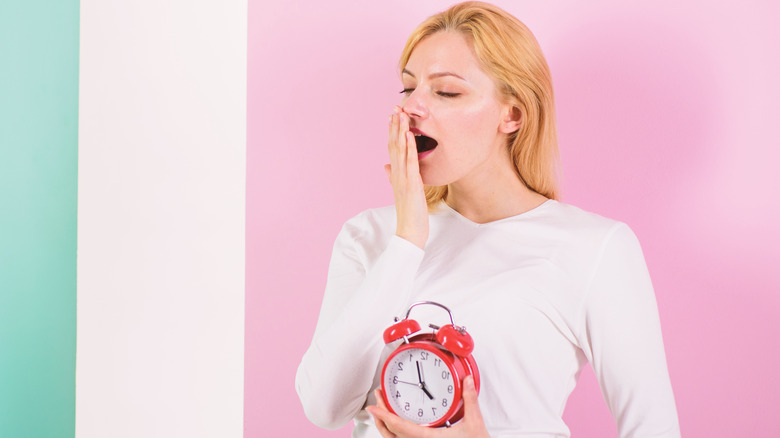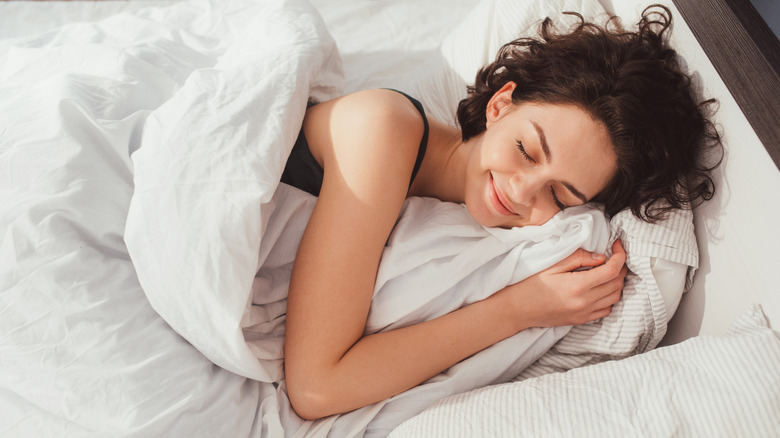When you have trouble sleeping, falling asleep, or staying asleep, or have post-traumatic stress disorder (PTSD), depression, or an anxiety disorder, sleeping pills can help you fall asleep and stay asleep. However, there are some dangerous side effects of sleeping pills that you need to watch out for. Sometimes the risks outweigh the benefits. For example, according to Psychology Today, sleeping pills can cause poor memory and increase the risk of death, and the sleep you get from sleeping pills isn’t natural sleep. As a result, it may not help you rest the way you need to.
According to Health, another problem with sleeping pills is addiction. While Sonata and Ambien can be less addicting, they can still be psychologically addicting. Signs you are addicted to sleeping pills are needing higher doses, trying to stop taking them but being unable to, looking for new doctors to prescribe sleeping pills, and if it affects your daily life, such as not being able to work or go to social events. If you experience any of these signs of addiction, make an emergency appointment with your prescribing doctor or go to the hospital for help with recovery.
Everyday Health explains some risks of sleeping pills that mean you may need to stop taking them — sleepwalking, memory loss, impaired driving, falls, and cancer. If any of these things happen to you, you need to stop taking sleeping pills. Here’s more information on those adverse side effects and risks.
Adverse side effects of sleeping pills

Everyday Health explains that if you experience impaired driving in the morning, you need to rethink taking sleeping pills or how you take them. For example, when taking zolpidem (Ambien), you could have enough left in your system in the morning that it impairs your driving.
If you or your partner notices strange behaviors like sleepwalking or amnesia, it could be from taking sleeping pills. You might wake up and not know where you are or how you got there. This side effect can be particularly dangerous if you go outside and into traffic or another risky situation. This often happens with benzodiazepines like triazolam (Halcion), but can happen with any sleeping medication.
Everyday Health explains that hospital patients who took Ambien were four times as likely to fall than patients who didn’t take it. So if you find yourself falling more often, it could be a sign you need to stop taking sleeping pills.
According to the Cleveland Clinic, other possible sleeping pill side effects are dry mouth, muscle weakness, constipation, diarrhea, headaches, gas, nausea, and heartburn. These side effects could be less risky than the other problems, but could turn into something you don’t want to deal with.
Quitting sleeping pills can cause withdrawal symptoms and rebound insomnia. Here’s how to stop taking prescription sleeping pills.
How to stop taking sleeping pills

You need to make an appointment with your prescribing doctor and make a plan with them. Your prescribing doctor knows you, your medical history, and the type of sleeping medication you’re taking. This information is vital in helping you stop taking them. The Sleep Foundation explains that your doctor will help you gradually stop your medication instead of quitting cold turkey. If you’re tapering off your sleeping pills and you experience nightmares, anxiety, or vivid dreams, tell your doctor. You may need to stop more gradually to avoid these effects.
Everyday Health explains that it will be rough coming off of sleeping pills. It’s not easy, but it will eventually get easier to sleep without them. Be patient with the process.
According to the Cleveland Clinic, cognitive behavioral therapy (CBT) works well for insomnia and improving sleep without sleeping pills. Another way to sleep better without medication is to have good sleep hygiene. Better sleep hygiene is vital to sleeping well. Quit smoking. Limit alcohol and caffeine, especially close to bedtime. Avoid large meals too close to bedtime. Turn off your phone and other devices at least a half-hour before bed. Keep a sleep schedule — go to sleep and wake up at the same times every day, even the weekends. Exercise daily. Get outside every day. Keep your bedroom dark, quiet, and cool. Try sleep meditations or something you find relaxing to help you get to sleep.

